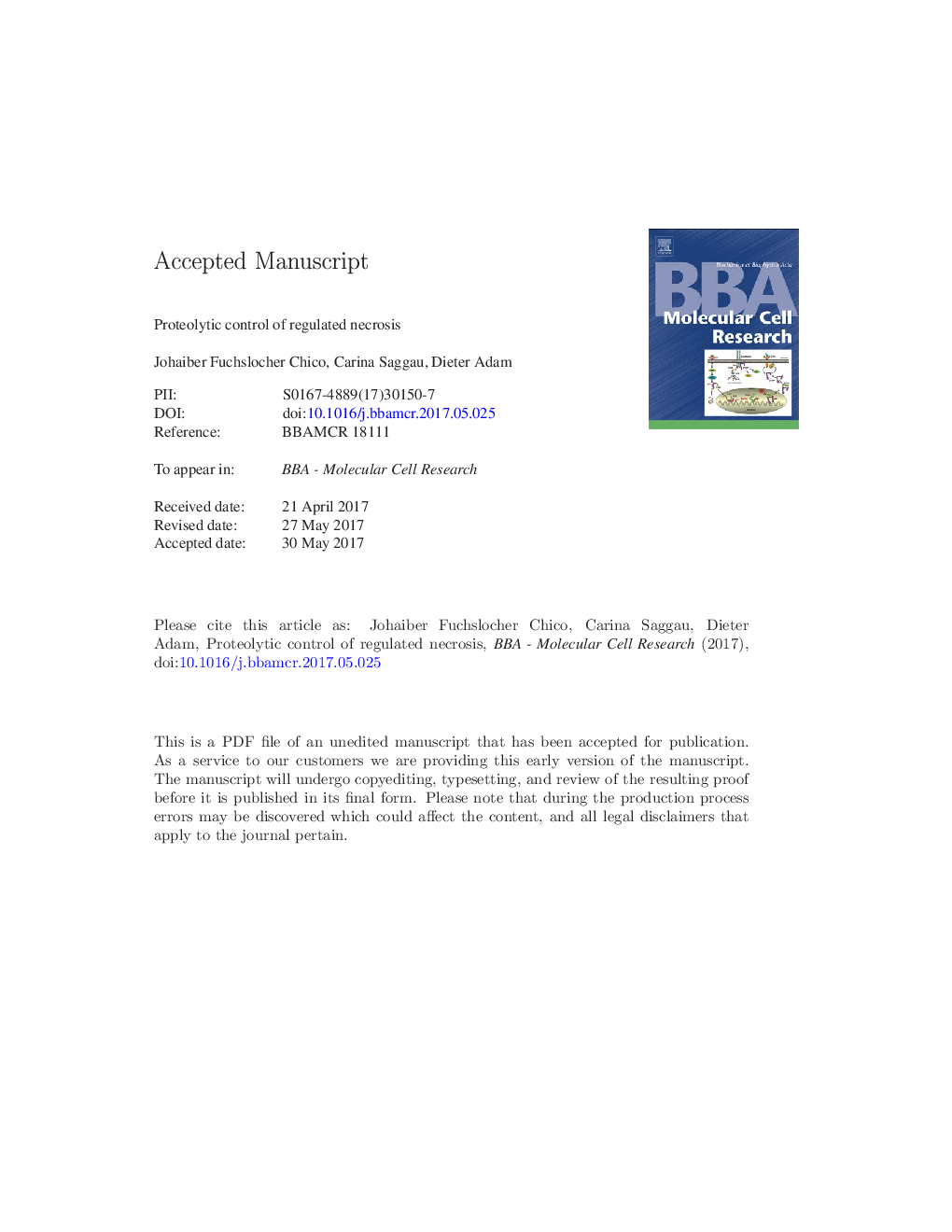| Article ID | Journal | Published Year | Pages | File Type |
|---|---|---|---|---|
| 5508576 | Biochimica et Biophysica Acta (BBA) - Molecular Cell Research | 2017 | 60 Pages |
Abstract
Proteases control most of the physiological processes that occur in a cell. This particularly applies to apoptosis, the most well-studied form of cell death, where proteolysis by cysteine-aspartic proteases (caspases) is the primary mechanism for both initiation and execution of cell suicide. In contrast, the impact of proteolysis on other, non-apoptotic cell death pathways (summarized under the term “regulated necrosis”, RN) has long been enigmatic, but has clearly been confirmed by a number of recent groundbreaking discoveries. Here, we review these discoveries and provide an overview on the role of proteolysis in known forms of RN, with a particular focus on necroptosis and pyroptosis, and their regulation by deubiquitinases, apoptotic and inflammatory caspases. This article is part of a Special Issue entitled: Proteolysis as a Regulatory Event in Pathophysiology edited by Stefan Rose-John.
Related Topics
Life Sciences
Biochemistry, Genetics and Molecular Biology
Biochemistry
Authors
Johaiber Fuchslocher Chico, Carina Saggau, Dieter Adam,
